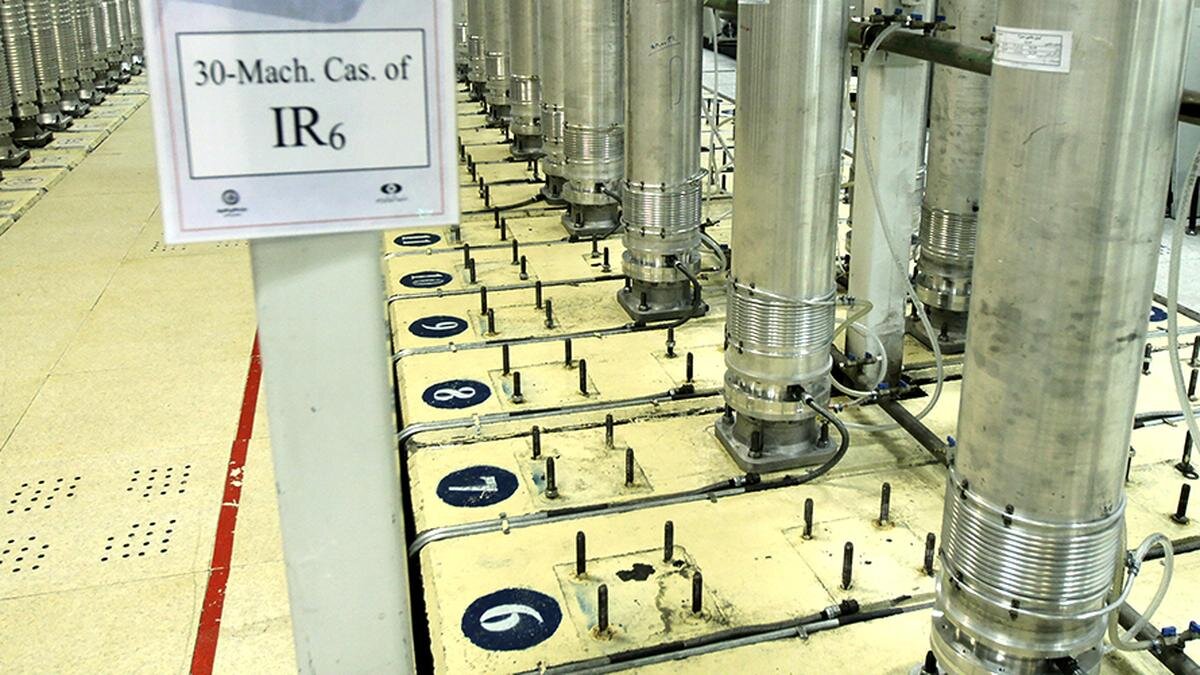Iran’s Araghchi defends country’s right to ‘possess full nuclear fuel cycle’

TEHRAN – Iranian Foreign Minister Abbas Araghchi took to social media on Friday to reaffirm Tehran’s right to pursue a civilian nuclear program under the Nuclear Non-Proliferation Treaty (NPT), directly countering recent U.S. demands for Iran to halt uranium enrichment.
The statement comes as indirect negotiations between Iran and the United States face delays, with tensions escalating over Washington’s contradictory rhetoric and renewed sanctions threats.
In a post on X, Araghchi dismissed U.S. claims that Iran’s enrichment activities violate international norms, writing: “Repeating falsehoods will not change basic facts. As a founding signatory to the NPT, Iran has every right to possess the full nuclear fuel cycle.”
He emphasized that multiple NPT member states enrich uranium for civilian purposes without pursuing nuclear weapons, adding that “maximalist positioning and incendiary rhetoric achieve nothing except eroding the chances of success.”
The Iranian top diplomat concluded his statement by striking a cautiously optimistic tone, asserting that “a credible and durable agreement is within reach” if the U.S. demonstrates “firm political will and a fair attitude.”
The Foreign Minister’s remarks served as a retort to U.S. Secretary of State Marco Rubio, who, in a Fox News interview, insisted that any deal with Iran would demand that it “halt the enrichment of uranium” and instead import nuclear fuel.
Rubio, acting as both Secretary of State and interim National Security Advisor, claimed that Iran’s domestic enrichment program poses proliferation risks—a contention that Tehran has consistently dismissed as being purely politically motivated.
Under the NPT, which Iran joined in 1970, non-nuclear-weapon states are permitted to develop nuclear energy for peaceful purposes, including enrichment, under International Atomic Energy Agency (IAEA) oversight.
Other NPT signatories—such as Germany, the Netherlands, Japan, and Brazil—also enrich uranium for civilian use without pursuing nuclear weapons.
Germany and the Netherlands operate facilities through the Urenco consortium, while Japan’s Rokkasho plant and Brazil’s Resende facility exemplify self-sufficient nuclear programs monitored by the IAEA.
Iran’s enrichment activities, similarly conducted under IAEA safeguards, have reached advanced levels, with the country maintaining that its program is purely civilian.
Mikhail Ulyanov, Russia’s Permanent Representative to International Organizations in Vienna, endorsed Araghchi’s position, writing: “Minister Araghchi is absolutely right. Under the NPT, States Parties don’t only take some basic obligations, but also get some basic rights that can’t be questioned.”
Stalled talks and Washington’s contradictions
The latest round of nuclear talks, mediated by Oman, was abruptly postponed on Thursday after three rounds of indirect negotiations.
While Omani officials cited “logistical reasons,” some analysts attributed the delay to Washington’s provocative sanctions, threats, and contradictory stances.
The U.S. State Department sanctioned seven entities tied to Iranian oil exports on April 30, followed by a social media post from President Donald Trump vowing to penalize any country purchasing Iranian oil.
Iran’s Foreign Ministry condemned Trump’s sanctions escalation, dismissing it as a recurrence of “failed tactics” that undermine diplomatic efforts. The ministry reaffirmed its commitment to a “just and balanced” agreement while warning that U.S. sanctions and threats only “deepen distrust.”
The Trump administration has sent mixed signals throughout the negotiations. Special envoy Steve Witkoff initially suggested allowing limited enrichment for civilian use, only to reverse course days later by demanding Iran “eliminate its nuclear enrichment and weaponization program”—a position Iranian analysts derided as a chaotic U-turn.
Meanwhile, Defense Secretary Pete Hegseth escalated tensions with a social media warning to Iran over alleged support for Ansarallah, declaring: “You will pay the CONSEQUENCE at the time and place of our choosing.”
Hegseth’s remarks sparked widespread condemnation, with critics linking his stance to perceived job insecurity and demands for his dismissal, citing his removal of numerous senior Pentagon officials and describing his leadership as chaotic.
Others connected his actions to U.S. setbacks against Yemeni Ansarallah. Republican Representative Thomas Massie countered, asserting that the post appeared to infringe on Congress’s constitutional authority to declare war.
“The Secretary of Defense doesn’t have the Constitutional authority to declare war on a sovereign country,” he stated. “A planned military attack on Iran is an Act of War and requires a vote of Congress according to the U.S. Constitution.”
The Trump administration’s contradictory tactics have additionally faced scrutiny from foreign policy analysts. John Mearsheimer, a renowned American political scientist, condemned Hegseth’s rhetoric in a recent interview as “immature,” characterizing it as reflective of an administration “filled with amateur people who do bone-headed things.”
Leave a Comment